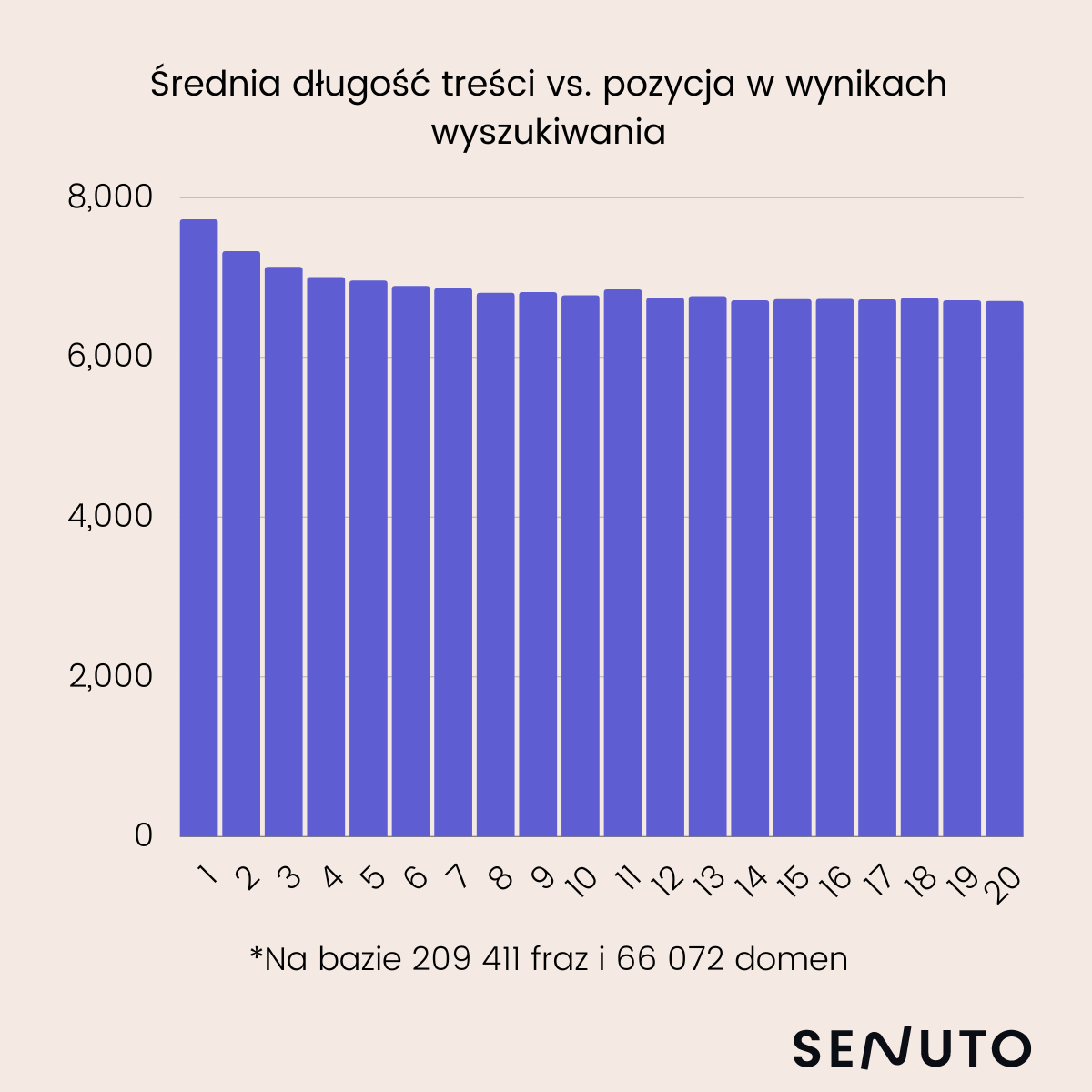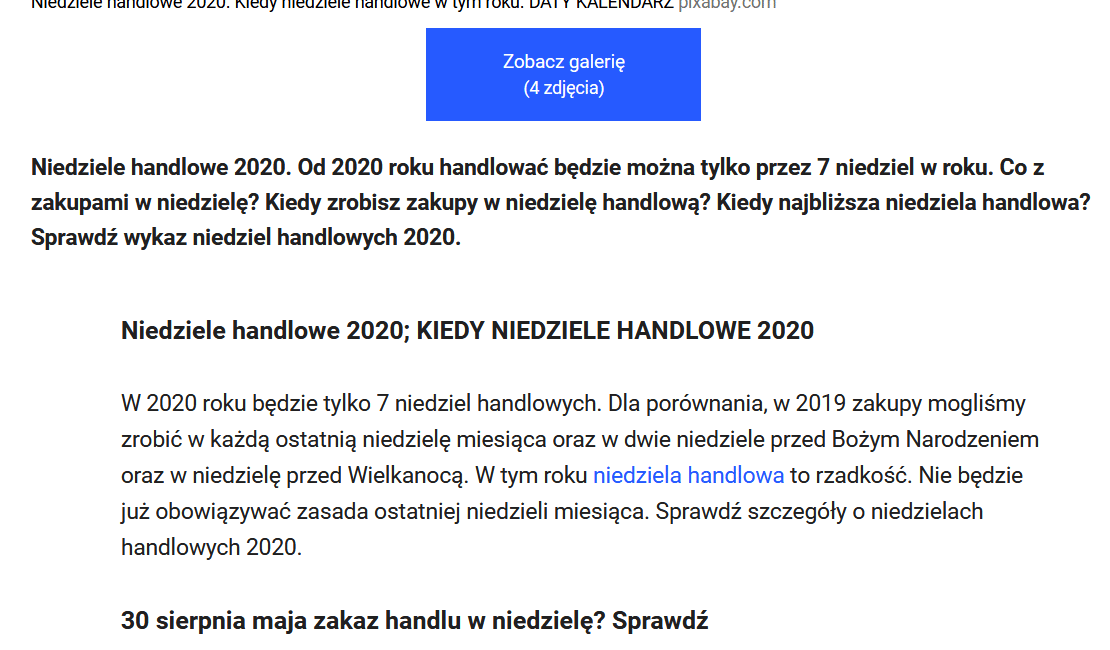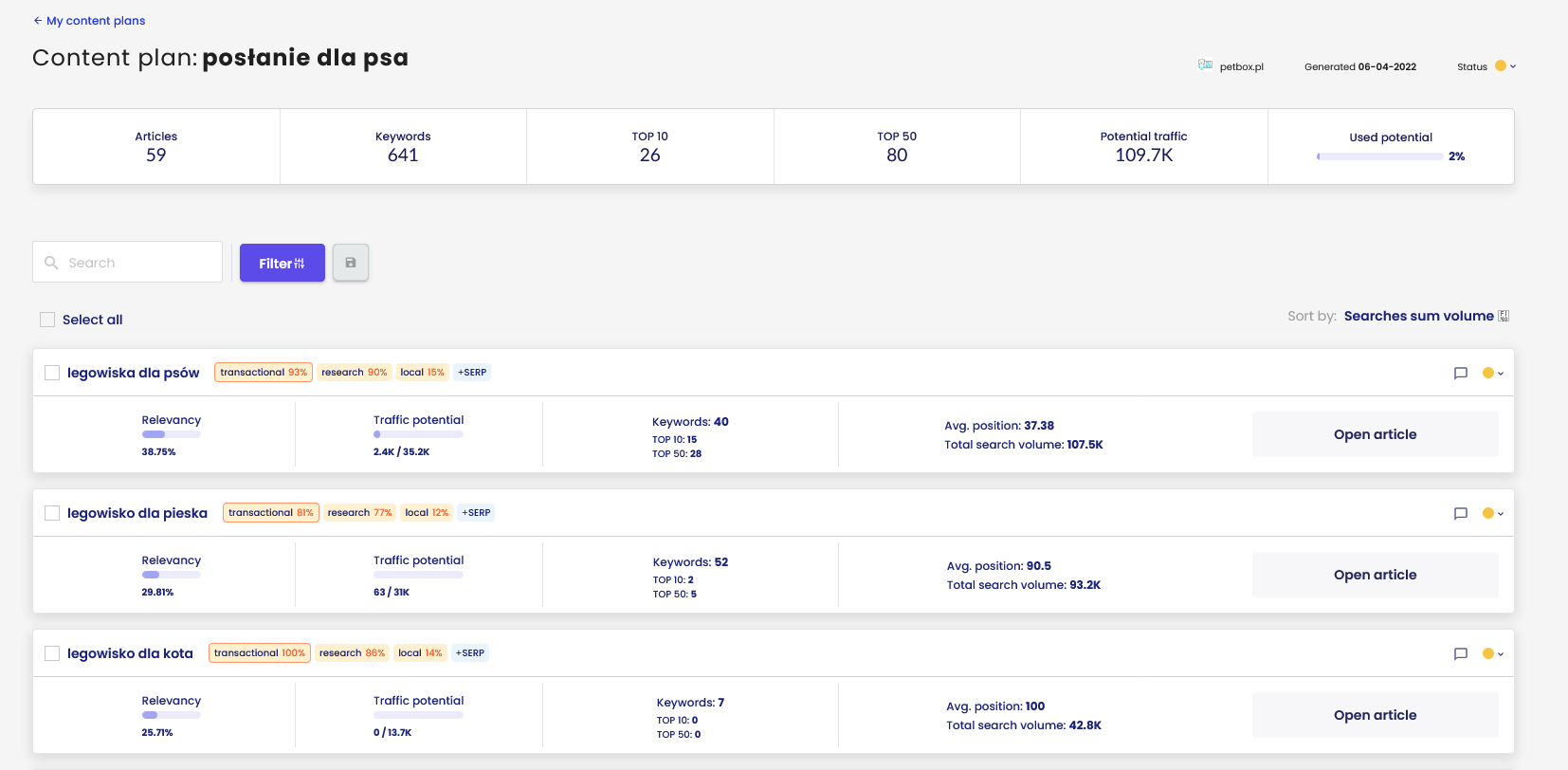Writing for SEO can be stressful at times. We leave aside situations where you have to write about submarine spare parts or electrochemical polishing techniques, and you know as little as nothing about it. Suppose you know a lot about the topic you want to describe on the site – yours or your client’s. However, you are still gnawed by doubts: how long should my text be? Have I saturated it sufficiently with the key phrase? Are you sure Google will grab it?
The good news is that you can largely let go of these worries and still get the results you want. Below I will try to convince you to do so.
There are a lot of myths and misconceptions in the SEO world about effective content optimization. This leads to confusion among people who professionally write/commission text or want to populate their company website with content. As a result, the reader sometimes gets mangled and unnatural-sounding articles, and the page rankings on Google don’t rise much.
That’s why it’s a good idea to update your knowledge of content positioning and say goodbye to some established patterns that don’t do any good.
1. You don’t have to write for a specific length
.
“Mr. Arechuk, this text we will ask for 7500 characters, no more and no less.”
When it comes to publishing in magazines, ebooks or other places that for various reasons have specific requirements for the number of characters – fine. However, when it goes to writing for SEO, aiming for a very strict text length is pointless.
From Google’s point of view, there is no such thing as an ideal text length. The notion that an article should be as long as possible is also untrue, as the search engine always favors extensive content. This myth is dispelled by a study conducted by Senuto:

.
It’s important to clarify: the search engine gives preference to content that completely covers a given subject matter. This does not mean that they have to be very long. Or that they have to stretch to 6,000 characters instead of 5, or that there have to be exactly 5450 characters in the content.
Much more important than the length of the content is its “caliber”. If you describe an issue according to the idea of topical authority, stick to the facts and exhaust the topic – you are essentially doing what Google requires of you.
.
Writing for a specific length is not one of those things. It’s a good idea to have a reference point in the form of averaging the length of texts that rank best for a given phrase – and aim for a similar length, while not taking it too literally. Content Writer from Senuto can help you determine the optimal length of your content (as well as key phrases, headlines, etc.).
2. You don’t_have_to_use_weird_keyword_phrases
.
If you happen to be checking Google when it’s Trading Sunday, your day may have become a tad worse. Here you go to a website and instead of specific information, you get a torrent of text. The key phrase (“shopping Sunday”) is conjugated at least three times already in the title itself. And it only gets worse from there.
.

You wade through a cloying conglomeration of empty words and ads, only to get what you were looking for at the very end, after a long scroll. Two things happen then: you feel frustration, and you also come to the conclusion that this is probably what all this writing for SEO is about. Repeat your keyword phrase to the point of boredom, pack it into the text as much as possible, and you’ll rank high in Google.
Well, no. It doesn’t work that way. Or rather, it only works in a specific case: when you’re a news portal and you want to get your news story into the Google News block. For some reason, Google’s algorithms still catch on, for this type of text. I wrote more about this phenomenon in the article Are publishers and journalists spoiling the Internet.
On the other hand, when it comes to texts other than news – that is, tutorials, descriptions, expert articles of all kinds – forcefully stuffing a key phrase into them can be counterproductive. Google has been saying for years to write content with the user in mind, not the search engine. And the user really doesn’t need to read “what running shoes to choose” 20 times in the text to understand that’s what the text is about.
Google, by the way, doesn’t need to either.
In the past, yes, that’s how it used to be: if you repeat a phrase an absurd number of times, the search engine will recognize that your text is probably very much on topic. That, however, changed a good few years ago. Algorithms have evolved and today their understanding of text is much closer to ours. The idea that Google recognizes the context and intent of statements is the foundation of semantic SEO.
The key phrase is obviously worth using in the meta title of the article, in at least one headline and in the URL. But other than that – take it easy. If you write naturally, the phrase will appear in the text anyway. And by reading the context of the article and your other pages, Google is able to tell what you’re writing about, even if you don’t repeat it over and over again.
3. Positioning your text doesn’t depend on it alone
.
The pressure to write a perfect text for SEO is sometimes lined with the expectation that if it’s actually perfect, Google will show it high in the rankings. That would be nice – but it’s not that easy.
You probably know that there are many factors that affect SEO. External links or technical optimization of the site are the first examples. What you need to pay double attention to in the context of content writing, however, is that a big role is played by tight coverage of a given topic. And this, in many cases, you won’t achieve with a single text – only a whole grid of them.
.
This means that if a single text discussing an issue is not supported by more material that responds to related topics, the chances of high rankings diminish. The thing is that Google values sites with high topical authority, which should be understood as an indicator of expertise.
For example, to get high topical authority for the topic “dog bedding,” Senuto’s Content Planner recommends writing 57 articles on topics semantically related to our main phrase.

.
As you fill your site with more content, its authority in the eyes of Google will grow. Thus, the effect is synergistic: on the positions of the page, on queries related to dog bed, a whole array of texts works. Individually they do not have much power, while combined into a coherent ecosystem of knowledge, they send a signal to Google that the page is worthy of the highest rankings.
Search engine content positioning is therefore not a matter of writing according to a strict length. Google also doesn’t give a bonus for conjugating a key phrase through all possible cases in the content. And finally – although each single text is important, it turns out to be even more important to plan a group of texts and successively cover the entire issue on the page.
.
 Wojciech Maroszek
Wojciech Maroszek